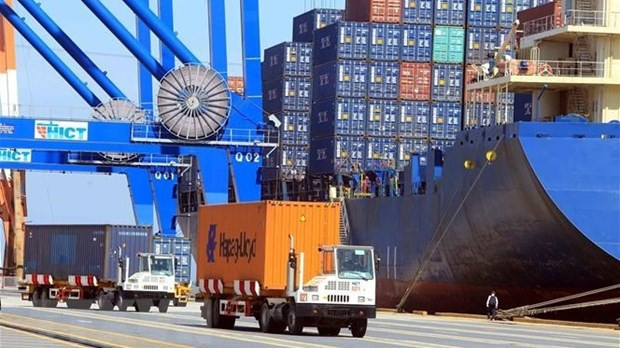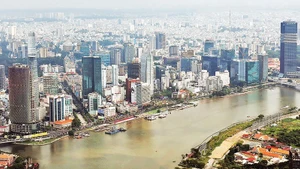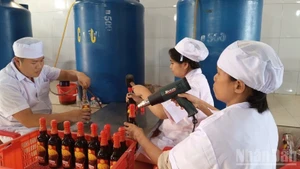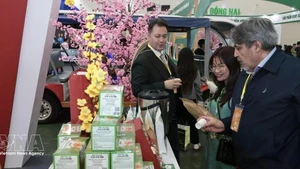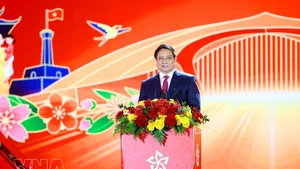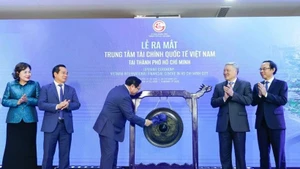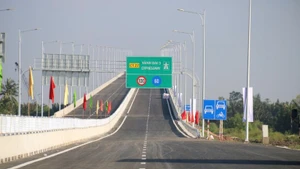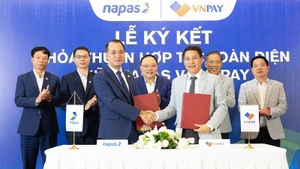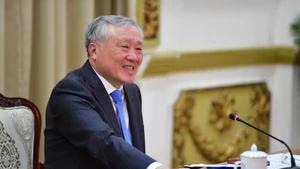Developing logistics into a service industry with high-added value
The Government will direct Ministers, heads of ministerial-level agencies, governmental agencies, and Chairmen of People's Committees of provinces and centrally-run cities to focus on the synchronous implementation of solutions to improve the competitiveness and develop Vietnam's logistics services.
The Government's viewpoint is to develop logistics services into an industry with high added value, linking them with the development of goods production, import-export and domestic trade, the development of transportation infrastructure and information technology. The Government aims to develop the logistics service market, focusing on improving the competitiveness of logistics service enterprises. It would also focus on making the most of the country's geographical advantages and strengthening connectivity to make Vietnam an important logistics hub in the region, and developing logistics in association with sustainable supply chains. Attention will also be paid to improving the quality of human resources, and promoting digital transformation and technology application.
Accordingly, ministers, heads of ministerial-level agencies, Governmental agencies and Chairpersons of People's Committees of provinces and centrally-run cities are required to focus resources on and urgently implement the tasks assigned in Decision No. 221/ QD-TTg. They should proactively handle arising problems according to their competence or report them to competent authorities as prescribed, take full responsibility before the Government and the Prime Minister for ensuring the progress and quality according to the set requirements.
The Ministries of Industry and Trade, Transport, Finance, and related agencies should closely monitor the international and regional situation and promptly analyze and assess the impacts affecting the country's economy. On that basis, they should proactively build scenarios and response plans, direct and operate logistics activities to well serve production, domestic goods circulation, and import and export activities.
Ministries, sectors, and localities are responsible for firmly grasping the situation, promptly detecting and immediately handling problems arising in logistics activities that could adversely affect the socio-economic situation within the scope and field of state management.
Towards the development of green logistics
The Ministry of Transport will take charge of and coordinate with ministries, branches, and localities in implementing transport components in national and regional master plans and provincial plans, so as to ensure the synchronization of transport infrastructure and logistics development goals, including logistics centres, inland depots, and bonded warehouses.
The resolution also looks to strengthen connectivity among different modes of transport, and maximize multimodal and cross-border transport to reduce costs and improve the quality of transport services. Goods trading floor will be developed in association with e-commerce toward green logistics development.
The Ministry of Finance is required to continue to review and remove obstacles in terms of tax policies, fees and service costs to facilitate the provision of logistics services. The ministry is tasked with coordinating with other ministries and branches in promoting trade facilitation activities, reforming customs procedures, reducing and simplifying specialized inspection procedures, standardizing dossiers, and implementing commitments in the WTO Trade Facilitation Agreement.
